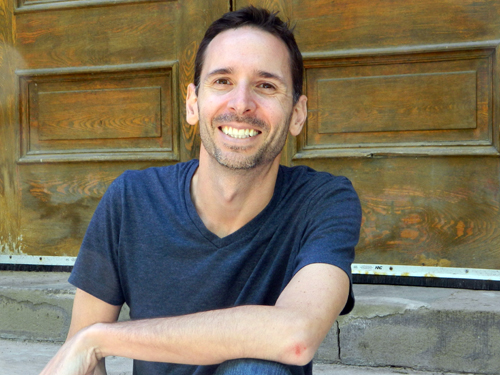
Throughout history, the older generation has complained about the younger one. But U of G business professor Sean Lyons says that there are some real differences between today’s young people in the work force and those from past generations.
“The whole life cycle has changed,” says Lyons. “People are getting married later and having children later, yet puberty is starting earlier. Being a young person in 2013 is very different from being young in previous generations.”
In the work force, that seems to translate into frequent job changes. Lyons’s research finds that today’s young people between the ages of 25 and 29 change jobs more than twice as often as baby boomers did at the same age. “They move up, laterally, down and change careers – all more than in the past,” he says.
To find out why, he asked workers from both generations to tell the stories of their careers before they turned 30. “I was a bit shocked to find that young people today don’t actually express a greater desire to move than previous generations,” he says. “But they have high expectations for their careers, and they often move because they are not satisfied with their work and don’t feel they are accomplishing what they hope. This dissatisfaction leads to restlessness.”
Lyons connects this to his 2009 study that found the expectations of university students about the pay they would make after graduation was quite inflated. “They expected to make about 10 per cent more than the average in their first job, about $45,000 a year,” he says. “But they thought their pay would go up to $75,000 within five years and almost $150,000 at their peak. That peak salary would put them in the top two per cent of Canadian earners – and it’s just not realistic.”
This difference between expectations and financial reality may be one reason for the restlessness, Lyons suggests. They also feel pressure to make more money because of debt, including student loans (on average, young people with student loans graduate with $27,000 of debt). Pressure may also come from looking at their parents, who probably owned a house and started a family by age 30.
“If you are always expecting more, you’ll always be dissatisfied,” says Lyons. It isn’t just parents who have contributed to this “me want more” way of thinking. Lyons points out that TV aimed at young viewers today emphasizes consumerism: everyone seems to live in luxury homes with plenty of time to shop and hang out with friends.
Despite his realistic view of today’s young employees, Lyons is prepared to speak up for them. “People who are older often see this generation as entitled and demanding,” he adds. “I feel I have to defend them. They deserve a break – they are at a disadvantage because the economy is just not expanding in the way it was for the baby boomers, and they were raised to expect things to be different.”
Research suggests that today’s youth are more individualistic, more ambitious and also more anxious and more depressed. “Their self-esteem is hollow, because it often comes without any actual accomplishments to support it,” Lyons says. “They are capable of great things but stop short of achieving them.” He mentions the “occupy movement” as an example: many people joined in the protest but there were no clearly articulated goals and it eventually fizzled out.
If young people do feel entitled, Lyons puts the blame on the generation that raised them. “What can you expect when their parents did everything for them? Parents want their kids to stand up for themselves, but that kind of attitude is not as appealing when you are the boss on the other side of the desk.”
Other challenges for these youth include divorce rates that are higher than ever before. Many of today’s young people grew up dealing with the complexities of single-parent or blended families. And in most families, both parents were working.
“You can’t overstate the magnitude of that change,” says Lyons. “In the entire history of human beings, we have had this gendered division of labour, and children were cared for by their mothers. And many women working in the 1980s and 90s were piecing together child-care the best they could. We really don’t know all the implications of these changes yet.”
Lyons feels the focus should not be on blaming young people for their restlessness and other challenges, but on harnessing their enthusiasm of youth. The end of mandatory retirement may be one barrier to that, says Lyons. “It used to be a social contract: seniors would retire to make way for younger workers but that’s no longer the case. For example, today we see eager young teachers who can’t find work, and older teachers who opt to not retire. It is soul-crushing to go into the teaching profession and never get the chance to work with children.”